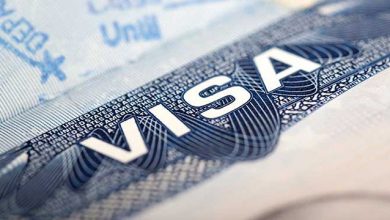Practical info
When to go
Sri Lanka is a year- round destination, the west and south coast and hill country are best and driest during the months of December to March, while the East Coast is at its finest during the months of May to September. The average temperature at the coast is about 27C while central hills drop to 14C.
Greetings
Ayubowan means ‘may you be blessed with long life’. It is the main greeting as well as goodbye in Sri Lanka. Hands are clasped together while uttering the Ayubowan. The country has two official languages which are the Singhalese and Tamil, learning a few phrases of these languages is a great way to make friends. English is widely spoken in the country.
Time
Sri Lanka Time is 5 1/2 hours ahead of GMT.
Business Hours
Government offices are open from 9 to 5 pm, Monday to Friday. Post offices are open from 8.30 to 5 pm, Monday to Friday and at 8.30 to 1 pm on Saturdays. Most offices are closed on Saturdays, Sundays and public holidays. While shops are usually open from 10 to 7 pm on Mondays to Fridays, and during Saturday morning, others are open during Sunday morning.
Most of the Museums are open from 9 to 5 pm, Tuesday to Saturday however there are some museums that are closed during Thursdays, Fridays and Saturdays.
Banks are open from 9 to 3 pm; Monday to Friday though some banks are open on Saturdays.
Currency
Sri Lanka follows decimal currency system in Rupees and cents with 100 cents equal to a rupee. The currency notes are presented in the denominations of Rs. 2, 10, 20, 50, 100, 200, 500, 1000 and 2000. There are coins in denominations of 1, 2, 5, 10, 25, and 50 and Rs. 1, 2, 5 and 10.
The exchange rate of Sri Lankan rupees per US dollar is 110.78 (2007). The intervention currencies are US Dollars and Euro.
There are many currency exchange counters at the arrival lounge so visitors will not find it hard to convert their currency to the local currency. Internationally accepted currencies and credit cards are easily accepted at most tourist establishments as well as traveller’s cheques. The exchange of foreign currency is permitted at banks, money changes and Hotels.
Visitors are allowed to bring in as much foreign currencies into the country. However if the money exceeds to US $15,000, the amount should be declared to the Sri Lankan Customs. Visitors are allowed to take out not more than the sum of US $ 5000 in currency notes.
The most widely used credit cards are Visa and MasterCard. Credit cards are widely accepted by the local establishments so it is handy to bring International Credit Card. The Sri Lanka currency regulation does not allow the credit card charges to be made in foreign currency therefore local establishments do apply the daily exchange rate on the day of payment and convert foreign exchange rate to Sri Lankan Rupees.
Customs
Visitors are asked to declare all the valuables, gem and jewellery upon arrival. Personal effects such as clothing, camera, films, 200 cigarettes, 50 cigars or 340 g of tobacco, perfume as well as 1.5 liters of spirits and 2 bottles of wine can be imported without a permit.
Custom authorities may enforce strict regulations concerning professional photography, film equipments, fire arms, religious materials, medications and other items so it is advisable to inquire at the nearest Sri Lankan Embassy for specific information regarding custom requirements.
Departure
Visitors may take out anything they have declared upon entering the country. They are also allowed to take back valuable items purchased in Sri Lanka such as gems and jewellery.
Maximum of 3 kg of tea can be exported duty free while unused Sri Lankan currency are advised to be reconverted to the foreign currency at departure.
Visitors are not permitted to take any currency in excess, gems, jewellery or any valuable gear to which have not been declared on arrival or not purchased in Sri Lanka. Tourists are prohibited to export more than 250 Sri Lankan rupees, firearms, explosives, dangerous weapons, antiques, statues, dangerous drugs, etc.
Clothing
Sri Lanka is a tropical country and so the climate is usually humid. It is best to bring light cotton clothes, light weight suits and loose clothing, hats, sunglasses, sneakers, cotton trousers and swimming gear. Most of the known hotels insist on formal attire on dinners, therefore it is advisable for men to bring suit or ‘long attire’ while ladies could come in dresses or skirts.
It is also advisable to dress modestly at religious sites. Do not enter the temple if you are wearing shorts and singlet. Shoes and hats should be removed before entering Buddhist or Hindu temple.
Nudity is also prohibited in the country even at the beach. Topless sunbathing is absolutely not allowed anywhere.
Electricity
In Sri Lanka the voltage is 220/240 volts. The country has two kinds of plug bases: the UK (Type G), rectangular plug; and the India (Type D), round pin. So it is rather safe to bring an adapter or ask the reception of the hotel to send you an adapter.
Tipping
Tipping is a way of showing appreciation to the services rendered and it is widely accepted in the country. Locals will surely be grateful to receive a tip from the foreign visitors. As a general rule in establishments, a 10% of the total amount due is usually given as a tip. House keeping staff, doorman, bellboy expect a little tip, 100-200 rupee is sufficient enough for each service. Tour guides or drivers also expect something between 5 to 15 US dollars depending on the level of satisfaction to the service rendered.
Shopping
Sri Lanka is known for its garment and textile, it not surprising to find an excellent selection of casual men and women, children’s and beach wear at extremely enticing prices.
Aside from garments there are also wonderful arrays of handicrafts on sale. There are also dazzling Sri Lankan batiks, wood carving, gemstones, silver and brass objects, the well known Ceylon tea and others.
Visitors are asked to avoid buying any ornaments made from tortoise shells and ivory even woodcarving from ebony, in order to preserve this rare hardwood.
Photography
Courtesy is a must. One should always ask permission before taking photographs of people or religious sites. Travellers should not offer money when taking photographs to the minority groups or to local people. Visitors should not pose in front of the sacred statues particularly if they are wearing scantly clothes. Although travelers are welcome to bring their cameras or video cameras certain places may prohibit photography or filming. Taking photographs of places with military importance should also be avoided.



